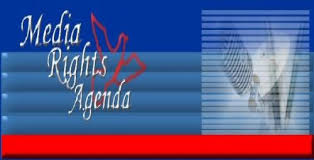The Media Rights Agenda (MRA) today called on the Federal Government to suspend its attempt to adopt a “Internet Intermediary/Interactive Computing Service Platform Code of Practice”, accusing it of attempting to regulate networks social and other online platforms through the back door. bypass the legislative process.
MRA described the draft Code of Practice developed by the National Agency for the Development of Information Technologies(NITDA) and published for public comment as a clumsy attempt to usurp the powers, functions and authority of the National Assembly, as well as a violation of the constitutional rights of Nigerians.

NITDA Head of Corporate Affairs and External Relations Hadiza Umar issued a “Press Release” on Monday announcing that NITDA has issued the Code of Practice which it is submitting for public comment, as per the directive of President Muhammadu Buhari in accordance with his mandate under NITDA. Act, to standardize, coordinate and develop regulatory frameworks for all information technology practices in Nigeria.
Condemning the effort, Ayode Longe, Director of Programs at MRA, said: “The Federal Government is clearly attempting to bypass the legislative process in favor of a backdoor approach to regulating social media and other internet platforms. It is curious that the Government has chosen to use an administrative document to surreptitiously create criminal offences, as the document unequivocally states that any Internet platform or intermediary found to be in violation of its provisions will be subject to prosecution and conviction.”
He argued that NITDA’s misuse of the term “Code of Practices” to describe the document amounts to acting under false pretenses to mislead Nigerians into believing that the government is trying to protect them when its true intention is obviously to control social media. and other Internet media. forcing them to register with the government and thus muzzle the right to freedom of expression online.
Mr. Longe argued that the document is a violation of Article 19 of the Universal Declaration of Human Rights (UDHR) and Nigeria’s treaty obligations under the International Covenant on Civil and Political Rights (ICCPR), which grants everyone the right to freedom of expression, including the “freedom to seek, receive and impart information and ideas of all kinds, regardless of frontiers…”
According to him, “the name is problematic. Although called a code of practice, it is not in fact intended to provide guidance for the implementation of any specific law or regulation. Rather, it creates criminal offenses that are not contained in any existing Law and attempts to legitimize them by vague reference to its Enabling Law and other laws, which is beyond the scope of any such administrative document.”
Longe argued that the underlying reasons for many of the document’s provisions are unrealistic and unreasonable, as they defy logic and common sense.
He said: “In today’s globalized world, is it possible or realistic to expect global internet platforms like Facebook, Twitter and others to register with the government of every country in the world where they have users and set up offices in all those countries? What is the implication of the Federal Government’s demand? In contrast, Nigeria’s outside broadcaster, Voice of Nigeria, broadcasts its signal and content to dozens of countries around the world and has a globally accessible website; Are you registered and have offices in all countries where your signals are received as Nigeria now requires platforms registered in other countries?
Longe described many of the document’s provisions as arbitrary and draconian, saying the requirement that platforms remove “illegal content” within 24 hours of receiving a notice or complaint from any authorized government agency constitutes an attempt of the government to control published content. on social media and other online platforms while circumventing the judicial process and usurping the functions of the courts that should rightfully determine what content is unlawful or unlawful.
MRA therefore rejected the “Code of Practice” in its entirety. He called on the government to drop it and approach the National Assembly with a proper bill if its genuine intention is to address legitimate issues rather than violate the rights of Nigerians and other members of the public under the guise of protecting them from fake news and disinformation.




GIPHY App Key not set. Please check settings